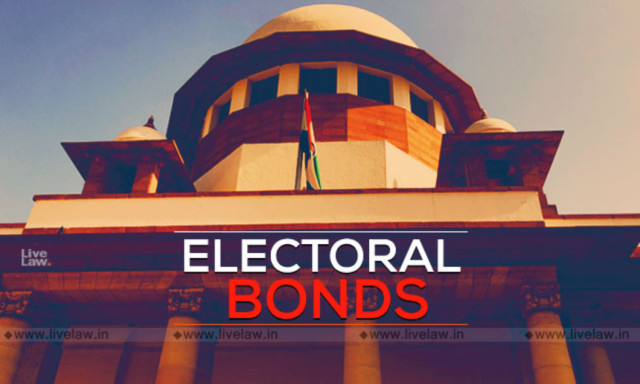Supreme Court Told Citizens Lack Right to Electoral Bond Funding Sources Disclosure
- Posted on October 30, 2023
- Legal
- By Arijit Dutta
- 492 Views
In a significant development, the Centre has informed the Supreme Court that citizens do not possess a universal right to access information regarding the origins of electoral bond funds. This statement came in response to pleas challenging the electoral bonds scheme and was made on October 29 during the court proceedings.
 Image Source -www.livelaw.in
Image Source -www.livelaw.in
In a significant development, the Centre
has informed the Supreme Court that citizens do not possess a universal right
to access information regarding the origins of electoral bond funds. This
statement came in response to pleas challenging the electoral bonds scheme and
was made on October 29 during the court proceedings.
R Venkataramani, the Attorney General,
emphatically asserted in the apex court that citizens cannot claim an
all-encompassing right to acquire information without being subject to
reasonable restrictions. He highlighted that the "right to know"
should serve specific purposes rather than being a blanket entitlement.
The Centre further expounded that such
unrestricted access to information could potentially be detrimental to the
health of democracy, as it may expose sensitive and confidential information
related to political parties and their financial contributors.
The government pointed out that
electoral bonds serve the crucial function of transferring funds to political
parties through secure banking channels, ensuring compliance with tax
regulations. In the past, political contributions lacked proper regulation.
This development unfolds in the context
of a series of petitions contesting the amendments introduced in the Finance
Act of 2017, which enabled the introduction of the anonymous electoral bonds
scheme. These amendments affected various key Acts, including the Reserve Bank
of India Act, Companies Act, Income Tax Act, Representation of Peoples Act, and
Foreign Contributions Regulations Act.
Under the revised rules, political
parties are not obliged to disclose the origin of donations received through
electoral bonds. This has been a point of contention, with the Election
Commission of India expressing concerns.
While an interim order in April 2019 mandated political parties to disclose donor details in sealed envelopes, a subsequent Supreme Court Bench declined to impose a stay on the electoral bond scheme in March 2021.
Also Read: ChatGPT Plus Update: Enhanced Capabilities For Subscribers Now Available
According to the Centre's affidavit
submitted to the Supreme Court on October 29, 2023, the electoral bonds scheme
is lawful, does not infringe upon existing rights, and cannot be invalidated.
The Attorney General emphasized that constitutional courts review state actions
only if they encroach upon established rights.
The case will be heard by a five-judge
Constitution Bench of the Supreme Court, led by Chief Justice DY Chandrachud,
starting on October 31.
In summary, the Centre's stance in the
Supreme Court underscores the delicate balance between transparency and the
protection of sensitive information in the electoral process, raising important
questions about the future of the electoral bond scheme in India.




